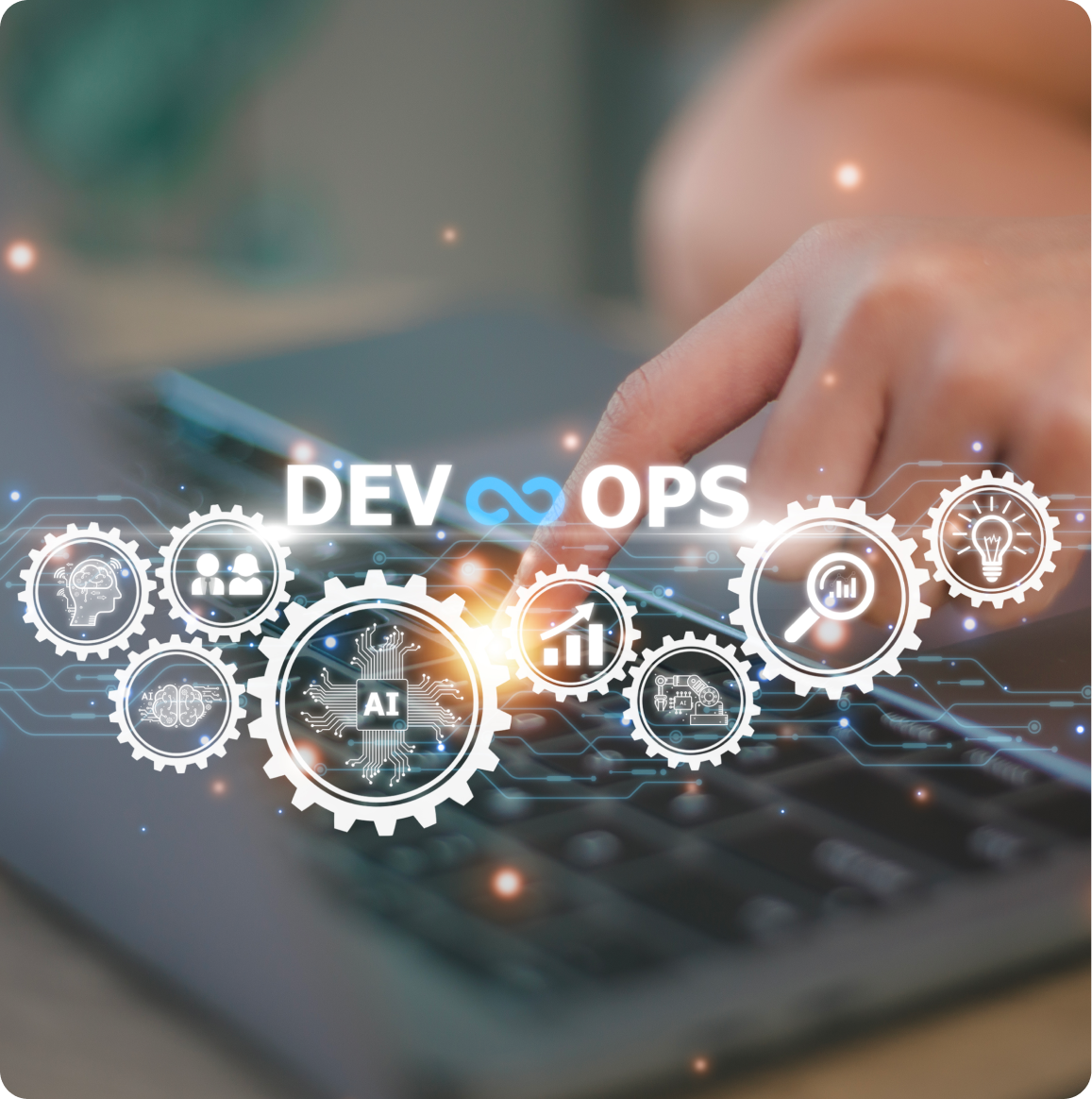Organisations can seamlessly deploy their workloads through the establishment of virtual machines. However, a critical aspect that is sometimes overlooked is security. The objective is to furnish self-service DevOps platforms, enabling developers to independently construct CI/CD pipelines and application monitoring dashboards. Many enterprises are making substantial investments in DevOps capabilities and endeavouring to devise a long-term deployment roadmap. Implementing DevOps services and solutions across the entire enterprises poses specific challenges, including:
Addressing security concerns Promoting DIY DevOps adoption Developing comprehensive CI/CD pipelines and monitoring strategies.
Gbit’s extensive expertise across diverse IT projects fortifies our capabilities in DevOps Engineering. Employing DevOps tools for automation and agile application lifecycle management, we have successfully executed over 20+ transitions. Our dedicated subject matter experts (SMEs) and research and development (R&D) teams leverage the Center of Excellence (CoE) at Gbit to craft forward-looking and future-proof IT solutions.
Collect, analyse, infer, and present data across five maturity stages using a four-phased process. The proficient DevOps environment at Gbit enhances system agility, sustains speed, and nurtures innovation.

Develop products with a security-centric approach to ensure secure data management, enforce access control, and mitigate damages, adhering to container and micro services security principles. Utilising our Jira plugin, the DevOps framework enables comprehensive traceability of security defects and seamlessly integrates security testing into your continuous integration system.

Enhance infrastructure agility though process modularisation and utilise DevOps configuration management. We design optimised CI/CD pipelines that incorporate security at every stage, starting from the IDE, through base images, to application security testing.

Support automated risk and vulnerability assessment, correlating all vulnerabilities, deduplication, and identifying false positives, among other specialised risk and vulnerability assessment techniques.

Examine the threat landscape and integrate security during the design phase. We identify threats through methodologies such as STRIDE, VAST, or PASTA, and use the DREAD model to assess severity, seamlessly integrating threat modeling into the development cycle.


Detects and resolves inbound bugs through the continuous integration cycle, enhancing program quality and expediting the validation of new software upgrades. DevSecOps establishes a test-driven development architecture that utilises continuous integration and automated testing to generate high-quality code with enhanced security and compliance.
Utilise continuous integration and version control to monitor infrastructure. Our cloud model allows developers to interact with the infrastructure programmatically. Gbit’s continually monitors the production environment for bugs, attacks, or security risks.
Adopt an iterative approach to validate application functionality. We ensure seamless integration of performance engineering with existing tools in the DevSecOps pipeline.
Implement DevSecOps automation to mitigate deployment risks and enhance overall productivity. We employ a robust ecosystem of open-source and licensed tools early in the development cycle to expedite application delivery.
Establish optimal systems for recovering from disasters by executing scripts, adjusting storage endpoints, and systematically shutting down virtual machines for restoration during a failover event. Our disaster recovery plan encompasses instructions for restoring business and IT services, including scenarios, run books, backups, and other essential resources.
Oversee the continuous delivery pipeline, automate the processing pipeline, and ensure the consistency of release and change management in DevSecOps.